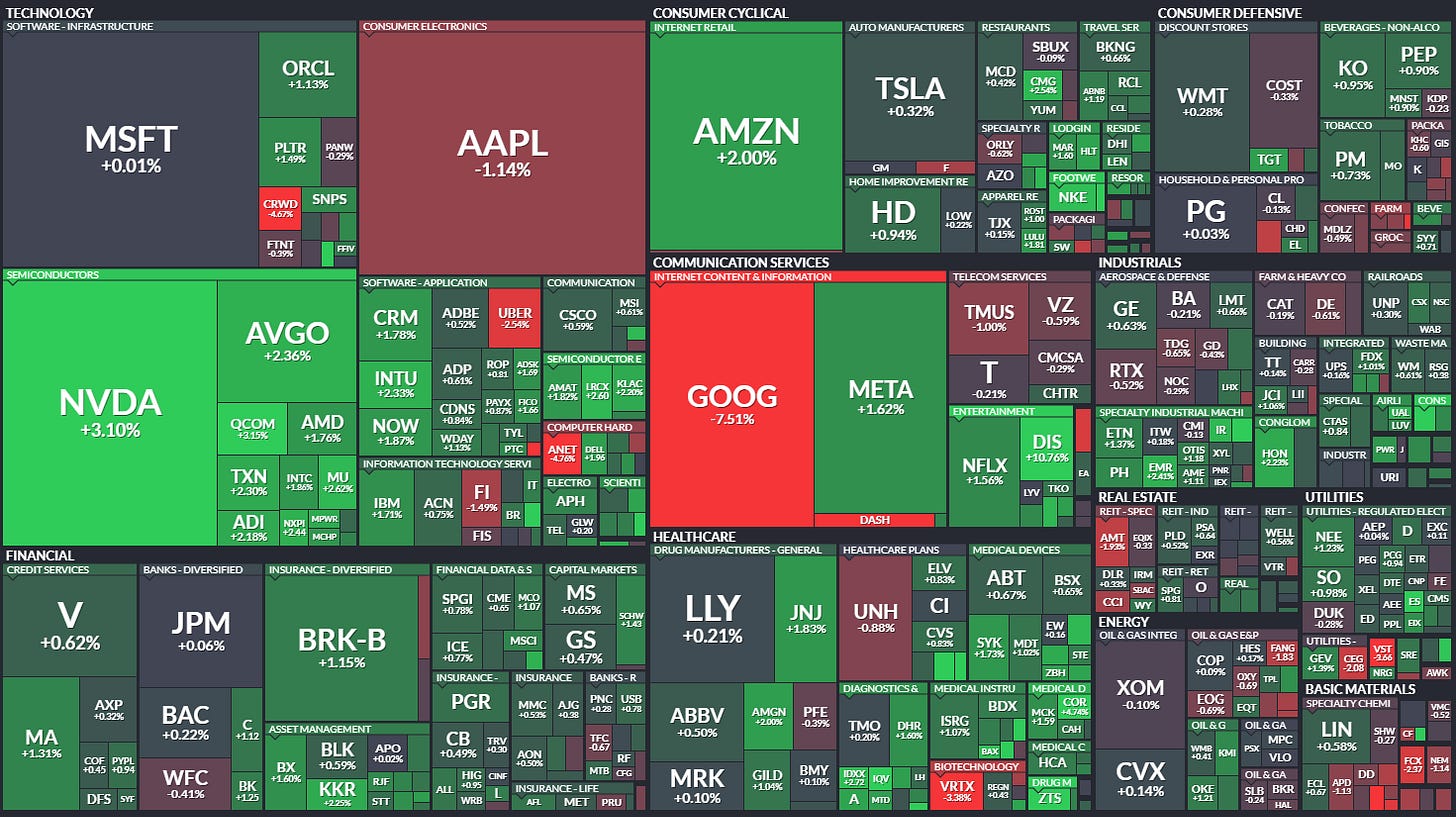Fed Pauses, Chips Surge: How Today’s Trade Talks and AI Exports Could Power Your Portfolio
Market News 08 May
U.S. stock indices showed notable resilience today despite mixed performances among individual stocks and ongoing uncertainty over trade policy. The Dow Jones Industrial Average rose 0.7%, the S&P 500 gained 0.4%, and the Nasdaq Composite added 0.3%. Investors were closely watching the Federal Open Market Committee (FOMC) meeting, which, as expected, left the federal funds target rate unchanged at 4.25–4.50%.
At his press conference, Fed Chair Jerome Powell emphasized that the current rate provides the Committee with the “flexibility to assess incoming economic data” before making any adjustments. He noted that this monetary stance allows the Fed “to await greater clarity on trade policy,” since higher tariffs could increase the risks of both higher inflation and higher unemployment.
The technology sector received an additional boost as the PHLX Semiconductor Index (SOX) climbed 1.7% after reports that restrictions on AI chip exports, imposed under the Biden administration, could be lifted. This lifted major chipmakers such as Nvidia, AMD, Broadcom, and Intel, all of which closed higher.
At the same time, shares of search and hardware leaders moved in opposite directions. Alphabet fell 7.5% to $152.80, and Apple dropped 1.1% to $196.25 after news that Apple plans to introduce an AI-based search feature, potentially diverting search traffic from Safari.
Positive sentiment on Wall Street was also partly driven by easing monetary policy from the People’s Bank of China. On Wednesday, the PBoC cut its seven-day reverse repo rate by 10 basis points to 1.40% and lowered the reserve requirement ratio for large banks by 50 basis points to 9.0%, which investors took as a signal of support for economic growth.
Markets are also factoring in the upcoming U.S.–China trade talks scheduled for May 8 in Switzerland. The U.S. Treasury Secretary and Trade Representative will meet in Davos to “de-escalate the tariff standoff.” However, pressure on shares was maintained by former President Trump’s repeated assertion that he will not preemptively roll back the 145% tariff on Chinese imports.
On the macroeconomic front, U.S. consumer credit rose by $10.172 billion in March versus expectations of $9.387 billion, and MBA mortgage applications increased 11.0% for the week ending May 2. The average rate on a 30-year mortgage fell to 6.84%.
In corporate news, strong quarterly reports from AppLovin and MercadoLibre beat revenue and earnings estimates, while Arm Holdings and Marvell Technology disappointed with lowered guidance. Dutch Bros reported same-store sales growth exceeding 6%.
The week will wrap up with U.S. unemployment and first-quarter labor productivity data, as markets gauge their impact on Fed policy ahead of the June 17–18 meeting, where traders assign a 23% probability to a rate cut.
Overseas, European markets closed mixed: the Euro Stoxx 50 fell 0.63%, China’s Shanghai Composite rose 0.80%, and Japan’s Nikkei 225 dipped 0.14%. Investors continue to balance current data, central bank actions, and trade negotiations in their search for profitable entry points amid growing uncertainty.




